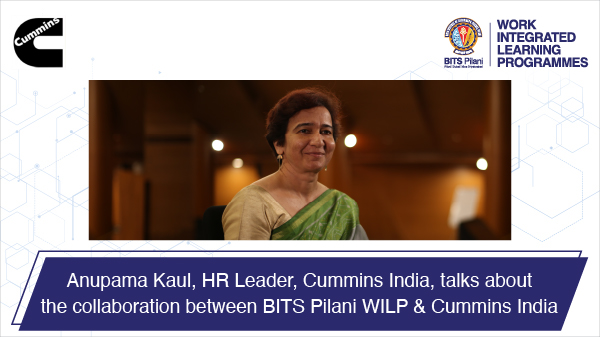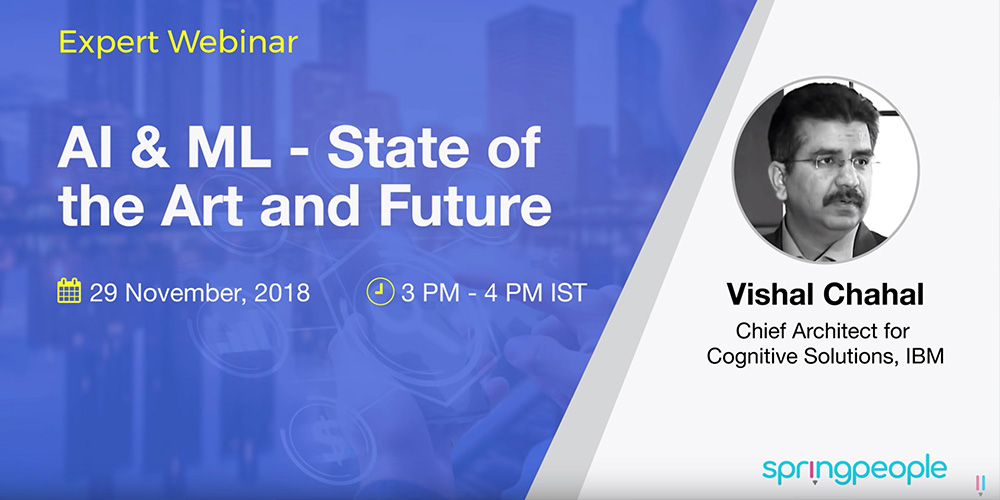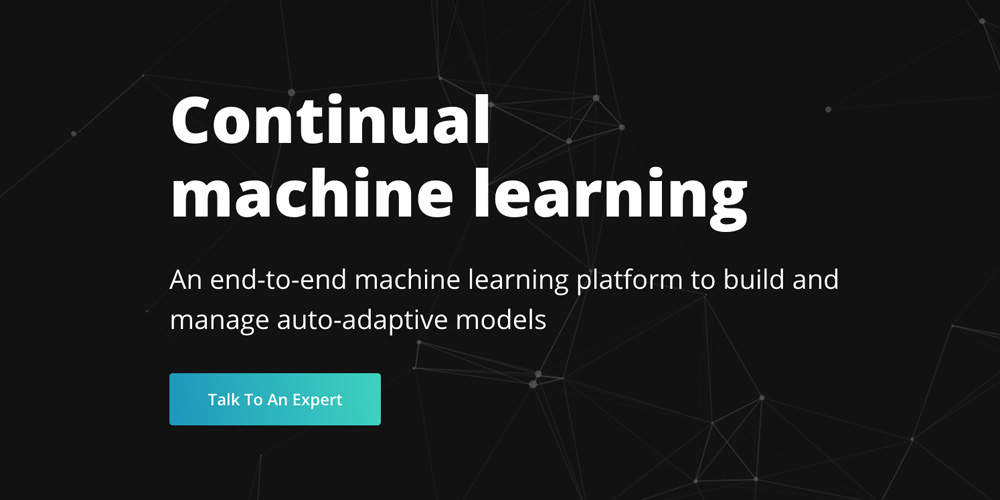Post Graduate Programme in Artificial Intelligence and Machine Learning
With growing clutches of digitization and digital transformation initiatives across several organisations in India, the demand for AI talent is expected to skyrocket.
According to the Fortune Business Insights forecast, the global Machine Learning market size was valued at $19.20 billion in 2022 and it is expected to grow from $26.03 billion in 2023 to $225.91 billion by 2030. So, get ready to make the most of it.
The 11-month Post Graduate Certificate Programme in Artificial Intelligence and Machine Learning by BITS Pilani Work Integrated Learning Programmes is designed to help working professionals like you develop a deeper understanding of AI and ML, and get equipped with knowledge on its various building blocks.
Option to pay fees using easy EMI with 0% interest.
Programme Highlights
- Post Graduate Programme in Artificial Intelligence and Machine Learning is a BITS Pilani Work Integrated Learning Programme (WILP). BITS Pilani Work Integrated Learning Programmes are UGC approved.
- Comprehensive and rigorous curriculum covering key concepts and technologies of Artificial Intelligence and Machine Learning.
- An 8-week Capstone project where you will work towards solving a Data Science related business problem under the mentorship of BITS Pilani faculty members and senior industry practitioners.
- Two Immersion modules of 2-days each at a BITS Pilani Campus or Online, during which participants will visit the Campus to interact with their peers and learn together from BITS faculty.
- Access to BITS Pilani instructors through technology-enabled contact classes which can be accessed from anywhere, Q&A support, and discussion forums.
- Participants who successfully complete the programme will become members of an elite & global community of BITS Pilani Alumni.
- Option to submit fee using easy-EMIs with 0% interest.
Programme Curriculum
The 11-month Post Graduate Programme in Artificial Intelligence and Machine Learning consists of 6 Courses and a Capstone Project
REGRESSION (5 WEEKS)
Regression is a widely used statistical learning method, and this course will enable participants to have a deeper understanding of regression models both from theoretical and implementation perspective.
The course covers concepts such as lasso regression, ridge regression and the interpretability of the predicted models.
- Overview of certificate programme in ML & AI
- Introduction to Regression
- Mathematics Foundations
- Model Building using Least squares
- Model Accuracy & Selection
- Overfitting
- Interpretability of regression models
FEATURE ENGINEERING (4 WEEKS)
Feature Engineering is an important step to develop and improve performance of Machine Learning models. In this course, students will learn different data wrangling techniques that help transforming the raw data to an appropriate form on which learning algorithms can be applied.
This course enables students to identify and implement appropriate feature extraction and pre-processing techniques. The Visualization techniques will also be taught in this course.
- Overview of Feature Engineering
- Data Preprocessing
- Dimensionality Reduction
- Visualization
CLASSIFICATION (9 WEEKS)
The course on Classification lays down a strong foundation on the algorithmic perspective of popular classification algorithms - k-NN, Naïve Bayes, Decision Tree, Logistic Regression and SVM. The implementation details of these models, along with tuning of parameters will be illustrated. The course also covers concepts such as ensemble methods like bagging, boosting, Random Forest, and interpretability of the predicted models.
- Overview of the Classification Module
- Nearest-neighbour Methods
- Naïve Bayes Classifier
- Logistic Regression
- Decision Tree
- Optimization Foundations for Support Vector Machines
- Support Vector Machines
- Support Vector Machines in overlapping class distributions & Kernels
- Ensemble Methods
UNSUPERVISED LEARNING & ASSOCIATION RULE MINING (7 WEEKS)
The course on Unsupervised Learning & Association Rule Mining focuses on finding natural groups or clusters that are present in the data. The course will cover lustering algorithms like K-means, Hierarchical & DBSCAN algorithms, Hidden Markov Models for time series prediction, and market basket analysis to generate the interesting rules from a transactional database.
- Introduction to Unsupervised Learning, Clustering
- K-Means Algorithm, K-Means – Variations, Detecting Outliers
- Math Fundamentals for EM Algorithm, EM Algorithm, Clustering for Customer Segmentation
- Hierarchical Clustering
- Density Based Clustering, Clustering for Anomaly Detection
- Assessing Quality of Clustering, Significance of Clustering - Interpreting/ summarizing Clusters by businesses
- Association Rule Mining, Apriori Algorithm
- Time series Prediction and Markov Process, Hidden Markov Model
Text Mining (5 weeks)
Text mining is the process of deriving high-quality information from text and this is the fifth course of the program. This course aims to equip students with adequate knowledge in extracting the relevant text data and skills to identify patterns therein. This course covers topics like converting documents to vectors, parts of speech tagging, topic modelling, sentiment analysis and recommender systems.
- Document vectorization and Parts of Speech Tagging
- Introduction to Part of speech tagging, Part of speech tagging using HMM-1, Implementing POS Tagging in Python
- Topic modelling using LDA
- Introduction to Sentiment Analysis
- Recommender Systems
Deep Learning and ANN (6 weeks)
Deep learning is an evolving subfield of Machine Learning and this course starts with traditional Neural Networks followed by sequential networks, Convolution Networks, Autoencoders and Generative deep learning models. The implementation details of these deep learning models along with tuning of the parameters will be illustrated in this course.
- Artificial Neural Network
- Sequence Modeling in Neural Network
- Deep Learning
- Convolution Networks with Deep Learning
- Autoencoders with Deep Learning
- Generative deep learning models
CAPSTONE PROJECT (8 WEEKS)
During the 8-week Capstone Project, participants will work in teams to design and solve a real-world business problem encompassing data science pipeline using AI&ML techniques under the mentorship of BITS Pilani faculty members and senior Industry practitioners.
REFRESHER COURSE
In addition to the Curriculum above, participants will have the option of taking an optional course on Python at the beginning of the Programme. This will allow participants to revisit essential concepts that will help in all other courses during the programme. Topics covered include Introduction to Python programming and installation, Data Types, Program constructs, Numpy, Pandas, Matplotlib, and Debugging Python programs.
For detailed programme curriculum, download the brochure.
Mode of Learning
The Mode of Learning used in this programme is called - Work Integrated Learning. Internationally, Work Integrated Learning (WIL) is defined as "An educational approach involving three parties - the student, educational institution, and employer organization(s) - consisting of authentic work-focused experiences as an intentional component of the curriculum. Students learn through active engagement in purposeful work tasks, which enable the integration of theory with meaningful practice that is relevant to the students' discipline of study and/or professional development*.
An education model can be considered as WIL if and only if:
- The programs are designed and developed by the institute in collaboration with industry.
- Work-focused experiences form an active part of the curriculum.
- The program structure, pedagogy and assessment enable integration of theory-with relevant practice.
The innovative Work Integrated Learning Programs (WILP) of BITS Pilani are quite aligned with the above definition and requirements. The programs are designed in collaboration with its industry partners, subject matter experts from industry and academia that enable the students to remain relevant in their chosen profession, grow in their career and retain the habit of lifelong learning. Case studies, simulation exercises, labs and projects further strengthen this integration.
The WILP of BITS Pilani is comparable to its campus-based programs in terms of structure, rigor, instruction, labs, assessment, faculty profile and learning support. The pervasive adoption of technology in all its academic processes makes the same high-quality education of BITS Pilani available to the aspirants at scale with the required flexibility.
Key Benefits of BITS Pilani WILP
1)Students can pursue the programme without any career break and along with the job.
2) The programme curriculum is highly relevant to sectors, industries and organisations they work for.
3) Effective use of technology to deliver a range of learning interventions such as faculty contact sessions, asynchronous learning, remote, virtual and cloud labs, learner support, peer to peer collaboration etc.
4) Contact sessions with faculty take place mostly over weekends or after business hours and are conducted over a technology platform that can be accessed from anywhere.
5) Comprehensive examinations will be scheduled at the end of Course 3 (for courses 1,2, 3) and Course 6 (for courses 4, 5,6) and are conducted mostly at designated examination centres distributed across the country (for details, click here to download brochure)
6) Learners can access engaging learning material which includes recorded lectures from BITS Pilani faculty members, course handouts and recorded lab content where applicable.
Mode Of Examination
Mode of Examinations applicable for students admitted in Batch starting in April/May 2024:
Comprehensive examinations will be conducted for each Course in the programme. These exams are typically conducted at the end of Course 3 (for Courses 1, 2, 3) and for Courses 4, 5, 6 before starting the Capstone Project. These examinations are mostly scheduled on Friday, Saturday or Sunday. Students need to appear in person for taking the examinations at the institution’s designated examination centres as per the examination schedule, Instructions, rules and guidelines announced before every examination.
Students can take their examination at any of our 33 designated examination centres in India at the following locations:
South Zone: Bangalore - North, Bangalore - Central, Bangalore - South, Bangalore - East, Chennai - North , Chennai - Central , Chennai - South, Hyderabad, Secunderabad, Vijayawada, Visakhapatnam, Kochi, Thiruvananthapuram and Coimbatore.
North Zone: Delhi, Gurugram, Noida, Jaipur, Chandigarh, Lucknow and Pilani.
West Zone: Mumbai, Navi-Mumbai,Pune, Pune - Pimpri Chinchwad, Goa, Ahmedabad, Indore and Nagpur.
East Zone: Kolkata, Guwahati, Jamshedpur and Bhubaneshwar.
In addition to these locations, the Institution also has a designated examination centre in Dubai.
In addition to the comprehensive examinations for each course, there will also be Quizzes/Assignments conducted online on the Learning Management System (LMS) as per the course plan in which the students need to participate.
Eligibility Criteria
Minimum eligibility to apply:
Employed professionals holding BE/ B.Tech. or equivalent, and working in relevant fields are eligible to apply.
Candidates holding M.Sc. in Mathematics or Statistics, and working in relevant roles are also eligible to apply to this programme. A working knowledge of languages such as Python is recommended
Fee Structure
The following fees schedule is applicable for the Post Graduate Programme in AI & Machine Learning.
Programme Fees : INR 2,45,000 (including GST)
Fee Payment Schedule:
- Block Amount: INR 25,000 (payable within 7 days of receipt of provisional Admission Offer Letter
- Remainder Programme Fee: INR 2,20,000 (payable within 15 days of receipt of Final Admission Offer Letter)
For details on No-cost EMI option with 0% interest, Click Here
Refund: Participants may cancel their admission within the first 14 days from the start of the cohort, i.e. Programme Start date (launch of Course 1). He/ She will be eligible to get a full refund of programme fee paid, minus the bank processing charges, and applicable taxes (the taxes won’t be refunded). Refund will be processed within a maximum of 45 working days. The participant will be required to fill in a refund form that will be made available by the Admission Cell.
Deferral: If a participant is facing severe issues in dedicating time to the course, we provide the opportunity for the participant defer to another batch. Participants can request for deferral ONLY ONCE and to the next immediate scheduled cohort of the same programme. Participants will be required to pay a deferral fee of 10% of programme fees (including GST). The deferral request will be approved once the deferral fee is paid. Till this is completed, the participant will be assumed to be continuing in the same cohort. The Participant will start learning on the new cohort from the point of leaving the deferred cohort. If, however, the deferral request is raised before the issue of BITS Student ID, the 10% deferral fees will not be charged, and participant will be deferred to the next scheduled cohort. However, in case there is any fee differential between his current cohort and the cohort he/she has deferred to, the participant will have to pay the differential amount.
All the above fees are non-refundable.
Important: For every course in the program institute will recommend textbooks, students would need to procure these textbooks on their own.
How to Apply
- You will receive a Provisional Admission Offer Letter within 2 days of receipt of your Application Form.
- Upon receiving the Provisional Admission Offer Letter, you will need to submit the following within 7 days using the Online Application Center:
- Block amount of INR 25,000
- Scanned copy of Passport size photograph.
- Scanned copy of self-attested Graduation degree certificate and marksheets.
- Proof of ID (Govt. issued ID such as Driving License, Passport, Aadhaar, Voter ID, etc.)
- Proof of employment, such as Work Experience Certification from current employer.
- Upon receiving the Block Amount and other supporting documents, you will receive a Final Admission Offer Letter. You will need to submit the First Installment (INR 2,20,000) within 15 days of receipt of this letter. For details on No-cost EMI option with 0% interest, Click Here.
- Upon receipt of the remaining First Installment, you will receive your BITS Student ID, detailed programme schedule and access to the learning.
Batch Profile
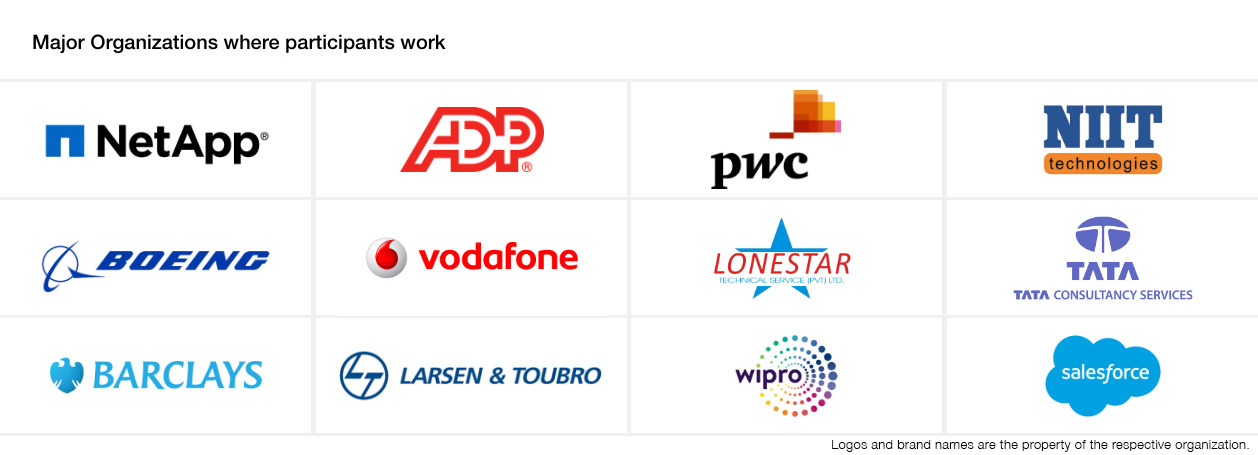
Featured Faculty

Prof. Sugata Ghosal

Prof. Pravin Y Pawar

Dr. Chetana

Dr. Saikishor Jangiti

Prof. Rajavadhana

Prof. Vijayalakshmi Anand

Prof. Ashish Narang

Prof. Swarna Chaudhary

Dr. Jyotsana Grover
Industry Endorsements
FAQs
Employed professionals holding BE/ B.Tech. or equivalent, and working in relevant fields are eligible to apply. Candidates holding M.Sc. in Mathematics or Statistics, and working in relevant roles are also eligible to apply to this programme. A working knowledge of languages such as Python is recommended.
Upon successful completion of the programme, participants will receive a Post Graduate Certificate in Artificial Intelligence and Machine Learning from BITS Pilani in addition to an Official Transcript and Programme GPA.
Yes. The qualification will provide you the prestigious BITS Pilani Alumni status, through which you will become member of an elite & global community of BITS Pilani Alumni.
a. A unique and specialised programme in Artificial Intelligence and Machine Learning that helps participants gain deep conceptual understanding and the skills that are highly valued by the industry
b. A rich & flexible learning methodology allows one to pursue the programme without any career break.
c. Engaging digital learning experience that involves expert lecture videos, assignments, online live classes and discussion forums. In addition you will also be able to clear your doubts through periodic live sessions with faculty and active online discussion forums.
d. The programme includes a 8-week rigorous project under the guidance of BITS Pilani faculty members and senior industry practitioners
e. The programme includes two Immersion modules of 2-days each at a BITS Pilani Campus or Online.
Participants will be expected to devote 8-10 hours each week to fully benefit from programme. You will be able to engage with lecture videos, complete periodic assignments, and interact with the cohort through discussions forums for a rich academic experience.
Programme participants will be able to engage with instructors to clear their academic doubts: a. Periodic Contact sessions with instructors will help you to clear your doubts and seek answers. b. BITS Pilani faculty members and Teaching Assistants will be available through discussion forums and email. c. Discussion forums will help you interact with other participants to seek an offer support.
During the 8-week Capstone Project, participants will work in teams to design and solve a real-world business problem encompassing data science pipeline using AI&ML techniques. Participants will be required to identify applicable AI and ML solutions, and apply these solutions to arrive at outcomes. Through each phase of the project, participants will be mentored by BITS Pilani faculty members and senior Industry practitioners using a rigourous and structured framework, and will receive regular feedback on their progress. Your project work is the showcase to the industry of your expertise in the domain of AI & ML.
Employed professionals holding BE/ B.Tech. or equivalent, and working in relevant fields are eligible to apply. Candidates holding M.Sc. in Mathematics or Statistics, and working in relevant roles are also eligible to apply to this programme. A working knowledge of languages such as Python is recommended.
With the huge amount of available data, industries are now inspired to move towards data driven decision making and hence there is a huge demand for experts in the area of Machine Learning and Artificial Intelligence. The demand for these skills has been increased by their widespread applications in industries such as Retail, Banking and Manufacturing. Therefore it is no surprise that the skills in these areas are the most sought after. BITS Pilani has studied the skills required for popular Data Science related roles such as Data Scientist, Machine Learning Engineer, AI Product Manager, Applied ML Scientist, and many other rewarding opportunities. The curriculum has been mapped to these roles and provides you with the knowledge, skills and expertise required to take up these in any AI & ML related role. We believe that armed with these skills an engineer will be sought after by the industry. Please note that BITS Pilani does not offer placement assistance as a part of this programme.
Refund: Participants may cancel their admission upto the first 14 days from the start of the cohort i.e. Programme Start date (launch of Course 1). He/ She will be eligible to get a full refund of his programme fee paid, minus the bank processing charges and applicable taxes (the taxes won’t be refunded). Refund will be processed within a maximum of 45 working days. The participant will be required to fill in a refund form that will be made available by the Admission Cell. Deferral: If a participant is facing severe issues in dedicating time to the course, we provide the opportunity for the participant defer to another batch. Participants can request for deferral ONLY ONCE and to the next immediate scheduled cohort of the same programme. Participants will be required to pay a deferral fees of 10% of programme fees (including GST). The deferral request will be approved once the deferral fees is paid. Till this is completed, the participant will be assumed to be continuing in the same cohort. Participant will start learning on the new cohort from the point of leaving the deferred cohort. If, however, the deferral request is raised before the issue of BITS Student ID, the 10% deferral fees will not be charged and participant will be deferred to the next scheduled cohort. However, in case there is any fee differential between his current cohort and the cohort he/she has deferred to, the participant will have to pay the differential amount.
.png)

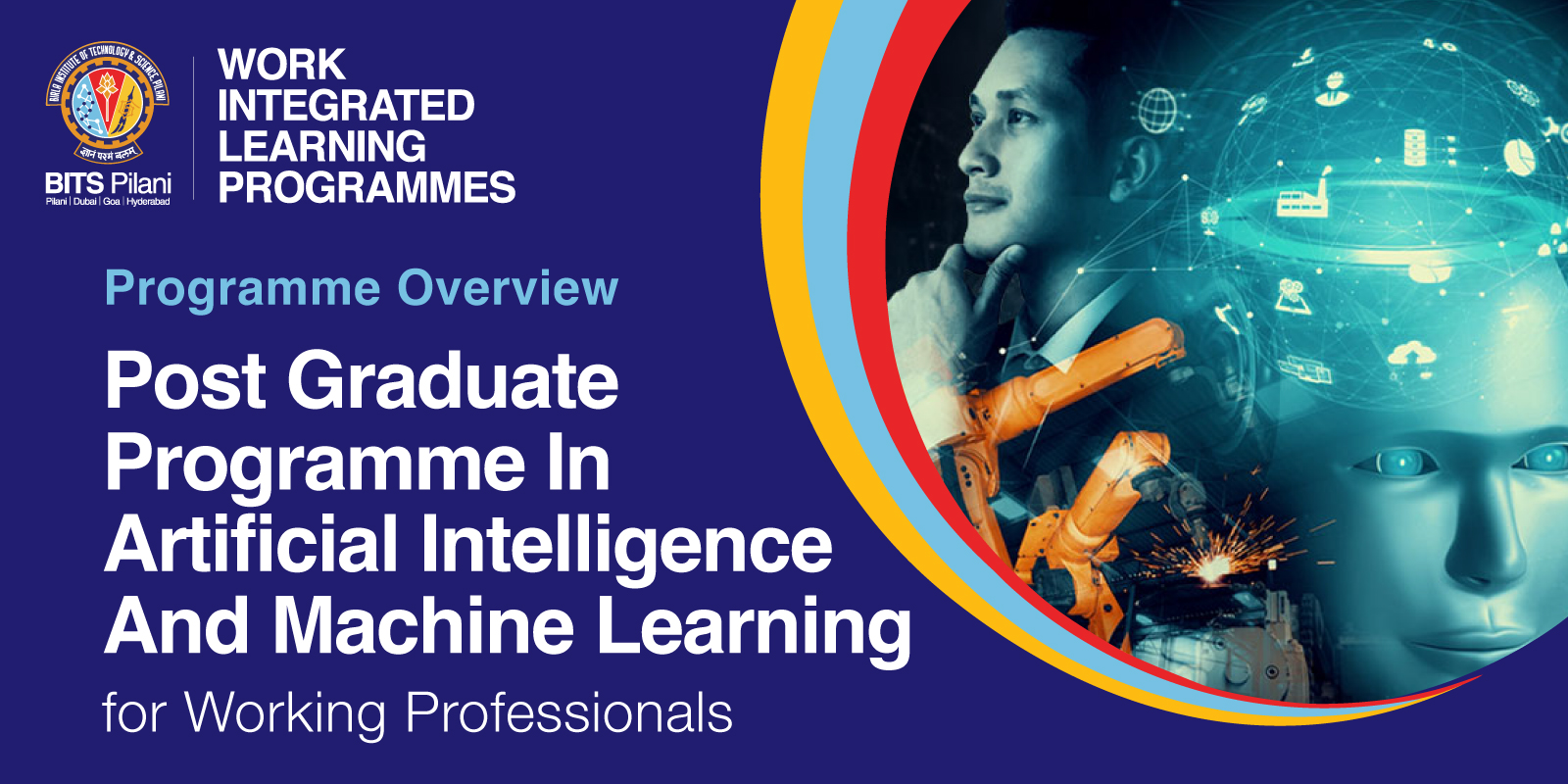
.png)
.png)
.png)
.png)
.png)
.png)
.png)
.png)
